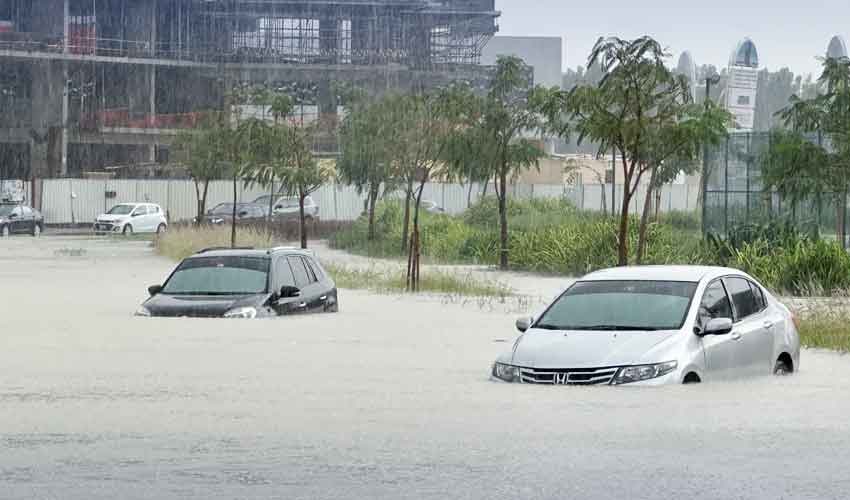The aftermath of this week's record-breaking storm, which brought much of the nation to a standstill, still plagued the United Arab Emirates on Thursday.
After Tuesday's storm flooded the runway in Dubai, operations at the airport, a major hub for travel, are still disrupted, leading to flight delays, cancellations, and diversions. The airport reported on Thursday morning that although international carriers are now able to receive inbound flights at Terminal 1, there are still delays and disruptions in the air.
The biggest airline at the airport, Emirates, announced that it will start accepting passenger check-ins in Dubai at 9am (0500 GMT) on Thursday, nine hours after the original midnight start time.
Customers departing Dubai can now check in for their flights. Please make your way to the airport only if you have a confirmed flight booking, as the airport remains congested.
— Emirates Support (@EmiratesSupport) April 18, 2024
🎫 Customers impacted by flight cancellations should contact their booking agent, DM us, or visit… pic.twitter.com/HIMzZho1m8
Due to flooding, the airport's surrounding roads were impassable, making it difficult for stranded travellers to get food, and overcrowding prevented access for those with confirmed reservations.
Following its Sunday landfall in neighbouring Oman, the storm pummelled the United Arab Emirates on Tuesday, causing hours-long traffic jams due to rainwater inundating homes and flooding roads. In the UAE, one person was reported dead, and in Oman, 20.
As the UAE saw its heaviest rains in the 75 years that records have been kept, flooding trapped residents in cars, offices, and homes, according to authorities.
Additionally, officials have ordered government workers and students to remain indoors while flooded roads are cleared.
Climate experts say that as a result of human-caused climate change, there are more extreme weather events occurring globally, like the storm that hit Oman and the United Arab Emirates.
Climate scientist Colleen Colja of Imperial College London said, "It's likely that the storm was kind of supercharged by climate change because there's just more moisture available in the air for any storm system to then precipitate out."
Researchers predict that higher temperatures, more humidity, and an increased risk of flooding in some areas of the Gulf region will result from climate change. In nations like the United Arab Emirates, where there is inadequate drainage infrastructure to handle heavy rainfall, the issue may get worse.
The government agency in charge of cloud seeding in the United Arab Emirates refuted reports that any cloud-manipulation operations were conducted prior to the storm.
UAE President Sheikh Mohammed bin Zayed Al Nahyan issued a statement late on Wednesday, according to the UAE state news agency, directing authorities to evaluate the damage and offer assistance to storm-affected families.



























